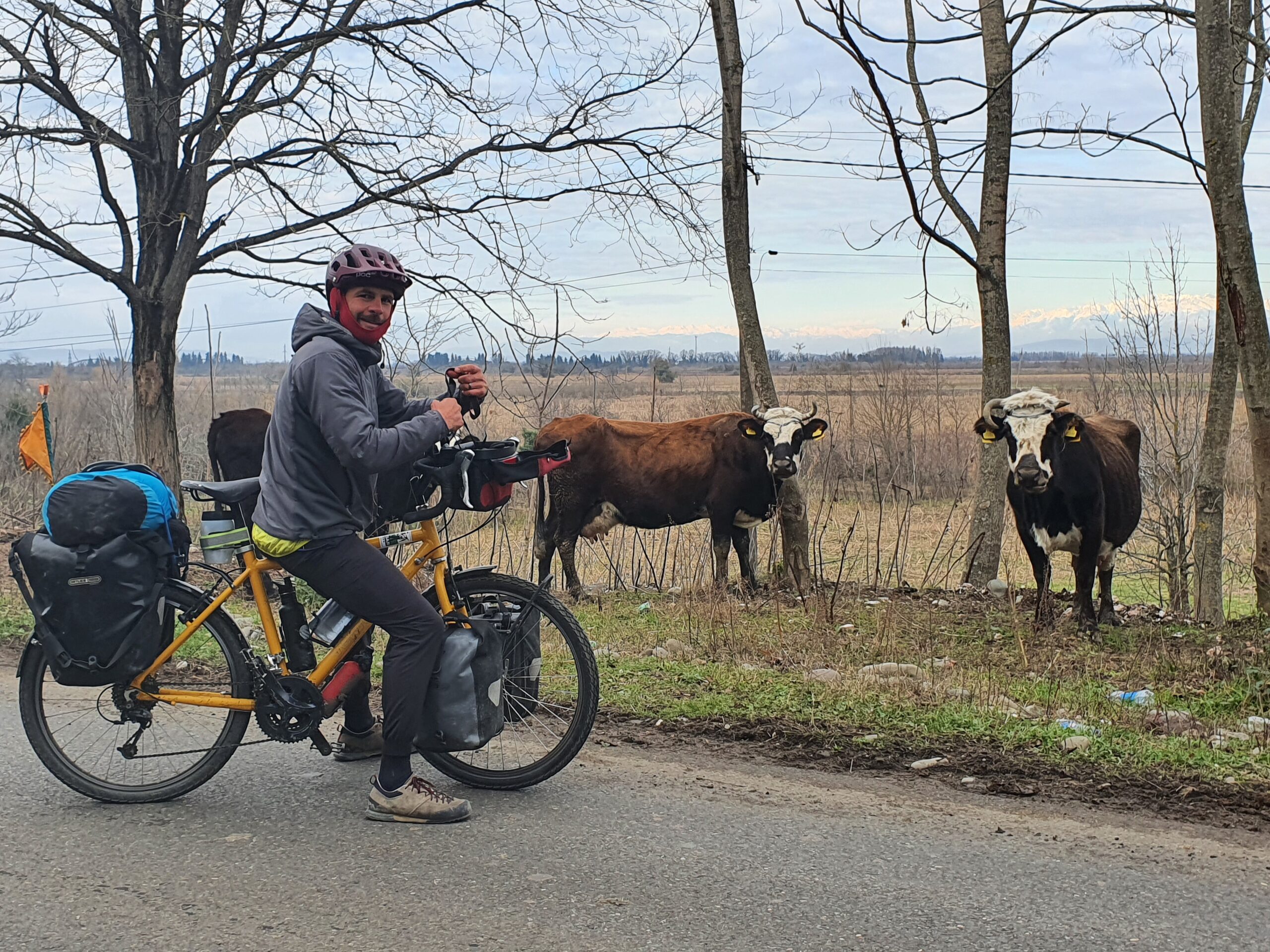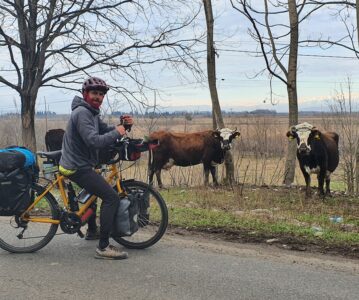In bright weather, we drive along the kilometer-long convoy of trucks to the border. The four-lane road leads squeezed between the sea and steeply rising rocks as the only passable passage into the small neighboring country. While the trucks have been stuck for days, we easily wiggle our bikes to the head of the line. Like a cork, the elegant border crossing closes the narrow passage. The trucks with exotic license plates stand wedged and chaotic on the relatively small forecourt and once again we celebrate being on the road with our bikes. On the Georgian side we are directed through the passenger passage and sooner than expected we are on Georgian soil. A bit wistful we leave Turkey. But also very curious about what awaits us in this new country. After the first turn in the new country, a bearded man waves to us from his rickety stand: “Wine wine!” he calls. “Georgian wine!”
Even the first few kilometers make it clear: this country is very different. The narrow border crossing forms such a clear border as we have never experienced before. The beautiful Georgian writing, illegible for us, puzzles us, on the roadside the mosques have abruptly given way to typical Georgian churches, there is much less trash lying around, and the landscape opens up. And then the trees. We have never seen a land border that is also a vegetation border. Nothing with flowing transition. From the border we suddenly drive through avenues of eucalyptus trees, we spy “cabbage-trees” that we only know from New Zealand, shaggy meadows adorn the roadside and evergreen shrubs and trees somehow make the landscape seem more spring-like.
Small, friendly cows walk with their calves in tow wildly through the area and also half wild ponies we spy. At the latest when a pig crosses the road in front of us, we realize that we have arrived in a place with somewhat different religious rules.
Soon the impressive skyline of Batumi begins to emerge. Glass skyscrapers crowd next to each other in the center and appear as if from another star. After crossing a bridge over a wonderfully wide river delta, the city begins to pile up around us. Soviet apartment blocks, huge traffic traffic circles, and chaotic, multi-lane roadways. We enter Batumi hungry and hoping for some new, interesting street food. We drive through an incredibly modern, but also somewhat extinct center and finally into the older part of the city. But where are the snack bars here? We wander around but apart from bars we discover little that could satisfy our appetite. A long-haired guy with a beer glass in his hand gives us a hint in good English, but that doesn’t help either. Beer and bars are everywhere, snacks less. Finally, in a side street, we find a shop window with various filled rolls. They don’t look very inviting, but we take them. Four soggy, tasteless dough patties later, our hunger is satisfied, but not our high expectations of Georgian food. Unfortunately, the next few days confirm this first impression: street food in Georgia means shoti (fresh, diamond-shaped tandoor bread), chachapuri (white bread pancakes) with cheese, chachapuri with bean paste (lobiani), and chachapuri with potatoes. The seasoning is best done by yourself. For dessert, we treat ourselves to either a sweet roll or a heavy pastry consisting of butter, sugar, and a little flour.
We leave Batumi and find a wonderfully enchanted place for the night: Above the Botanical Garden we come across a (church?) ruin in the middle of the greenery with a view of the distant skyline and the Black Sea. An old man, who maintains a small, wild garden here and lets his cow graze, tells us a lot about himself and the world. Unfortunately, he speaks only Georgian and we definitely do not. The conversation is nevertheless very friendly and funny, as we all try our hand at expressive pantomime. We are already cooking dinner when Baka stops by again and surprises us with a huge bag of tangerines and oranges fresh off the tree.
Georgia’s landscape is different. Here again there are hedges and bushes, small woods and open, shaggy pastures. While in large parts of Turkey almost every square meter is used for agriculture, here there is again room for real nature. The simple wooden houses are all surrounded by large, semi-wild gardens and enclosed by photogenic wooden or metal fences. Hazelnut bushes, persimmon trees and, of course, the obligatory vines can be found around every house. “Gamarjoba,” we call out to people and raise our hands in greeting. Usually there is a nod or the answer “Gagimarjos” together with a puzzled look back. Riding a bike here? With so much luggage? In winter? We leave the coast and head northeast into the interior. In the meantime there is snow on the roadside and dry places are becoming rare. We are just about to sneak into a school yard for lack of alternatives to spend the night, when a car pulls up next to us and Christoph offers to help. “You are welcome to spend the night in our garden,” he says. We gladly accept this offer and so we spend the evening with the German emigrant family. After an 11-month journey with their motor home, Claudia and Christoph and two sons settled in Georgia half a year ago. Here they are now renovating their new home and planning a small family camping on their beautiful patch of land. The two give us some valuable tips about the country, the people and the language. Among other things, they tell us about a sulfur spring only 70 kilometers away – a perfect destination for the New Year’s Eve. Fortunately, the spring is even on our planned route.
The next day we say goodbye to the happy family and set out on the cold road.
As so often we try to avoid the busy main roads and so the route takes us through wintery hilly landscapes, with lonely houses, through wooded areas, along river landscapes and through smaller villages. Georgia, or rather life here, seems as if set back in time. The people are mostly self-sufficient, wood is chopped in the garden, the houses are largely built by themselves.
Our hot spring is further away than expected. Late in the afternoon a small picture board points us away from the road into a rumble road. But the slalom between the deep potholes is well worth it: In fact, in the middle of a muddy meadow, a steaming pool with peculiar blue water appears in front of us. We are there. Together with a Belorussian and two Germans we lie in the hot water until late at night and let ourselves cook to the end of the year. We put our tent cheekily on the covered veranda of a small farmhouse nearby, since rain is forecast for the night.
Translated with www.DeepL.com/Translator (free version)


